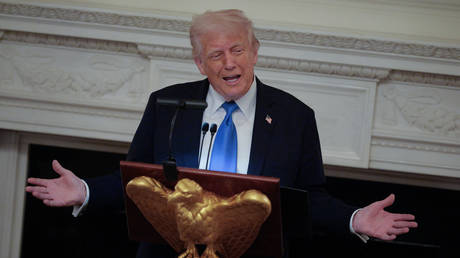June 5, 2025
In a significant policy shift, President Donald Trump has signed an executive order imposing a comprehensive travel ban on nationals from 12 countries, with additional restrictions on seven others. The proclamation, announced on June 4, is set to take effect at 12:01 a.m. EDT on Monday, June 9, 2025.
Countries Affected
The full travel ban applies to citizens of Afghanistan, Myanmar, Chad, the Republic of the Congo, Equatorial Guinea, Eritrea, Haiti, Iran, Libya, Somalia, Sudan, and Yemen. Additionally, heightened restrictions will impact travelers from Burundi, Cuba, Laos, Sierra Leone, Togo, Turkmenistan, and Venezuela.
Rationale Behind the Ban
President Trump justified the measures by citing national security concerns, emphasizing the need to prevent entry of individuals who might pose threats due to inadequate vetting processes in their home countries. In a video message, he referenced a recent attack at a pro-Israel rally in Boulder, Colorado, as a catalyst for the renewed focus on immigration controls.
Historical Context and Legal Considerations
This action marks a reinstatement and expansion of the controversial travel ban initially introduced during Trump's first term in 2017, which faced multiple legal challenges before a revised version was upheld by the Supreme Court in 2018. The current ban extends the scope to additional countries and includes broader restrictions.
Exemptions and Implementation
According to the White House, exemptions to the ban include lawful permanent residents, existing visa holders, certain visa categories, and individuals whose entry serves U.S. national interests. The administration asserts that these measures are necessary to compel foreign governments to enhance their information-sharing and security protocols.
Domestic and International Reactions
The announcement has elicited a spectrum of responses. Civil rights organizations and immigration advocates have expressed concerns about potential discrimination and the impact on refugees and families. Legal experts anticipate forthcoming challenges to the proclamation, questioning its alignment with constitutional protections and international obligations.
Looking Ahead
As the implementation date approaches, the administration maintains that the travel ban is a critical component of its strategy to safeguard national security. Observers and stakeholders worldwide are closely monitoring the developments, assessing the implications for international relations and human rights.










